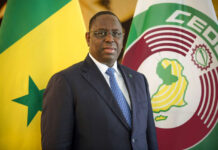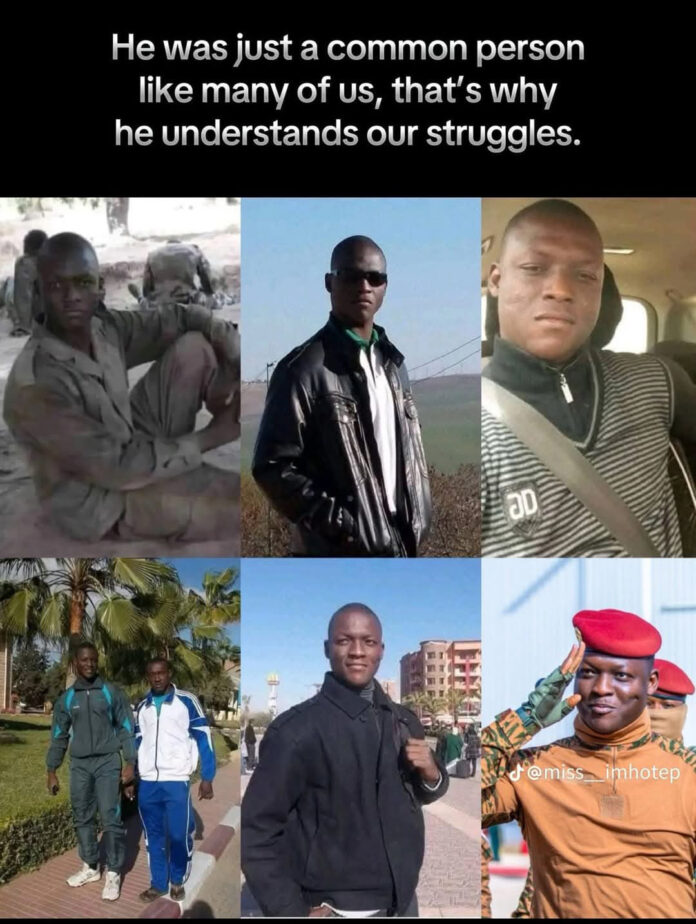Captain Ibrahim Traoré, the 37-year-old interim President of Burkina Faso, has rapidly become one of the most talked-about figures in African politics. His meteoric rise, anti-colonial stance, and bold reforms have not only transformed Burkina Faso’s trajectory but have also sent shockwaves through the ranks of Africa’s older, entrenched leadership. Traoré’s leadership style, rhetoric, and policies are challenging the status quo, inspiring youth, and putting pressure on long-standing leaders across the continent to respond to a new wave of Pan-Africanism and sovereignty.
**A New Generation at the Helm**
Traoré’s ascent to power in September 2022, following a coup against Paul-Henri Sandaogo Damiba, marked a generational shift in African leadership. At just 37, he is the second-youngest head of state in the world, a stark contrast to many African presidents who have ruled for decades and are often well into their seventies or eighties[1][9]. His youth and military background have given him a unique appeal, especially among Africa’s burgeoning young population, who see in him a reflection of their own aspirations and frustrations with the old guard[9][10].
**Challenging the Old Order: Anti-Colonialism and Sovereignty**
One of Traoré’s most significant impacts has been his uncompromising stance against neocolonialism, particularly French influence in Burkina Faso and the broader Sahel region. Traoré has expelled French troops, nationalized key industries, reclaimed gold mines, and renegotiated exploitative contracts, positioning himself as a champion of true independence[2][8][10]. This direct challenge to the established order has resonated not only within Burkina Faso but across Africa, where many countries continue to grapple with the legacies of colonialism and external influence[4][6].
Older African leaders, many of whom have maintained close ties with former colonial powers for economic or security reasons, now face increasing scrutiny from their populations. Traoré’s rhetoric and actions have reignited debates about sovereignty, resource control, and the need for African solutions to African problems—a discourse that puts pressure on leaders seen as too accommodating to foreign interests[6][10].
**Pan-Africanism Reinvigorated**
Traoré has positioned himself as a vanguard of a new Pan-African renaissance, echoing the revolutionary spirit of figures like Thomas Sankara, Patrice Lumumba, and Kwame Nkrumah[6][10][11]. He has played a pivotal role in forming the Alliance of Sahel States with Mali and Niger, a bloc that seeks to chart an independent path outside the influence of regional bodies like ECOWAS, which many see as being aligned with Western interests[1][7]. This move has emboldened other leaders to reconsider their alliances and has sparked calls for greater regional integration based on shared African values and interests.
**Exposing the Failures of Long-Standing Leaders**
Traoré’s rapid reforms and visible leadership have exposed the shortcomings of older African presidents who have clung to power for decades with little progress to show for it. Leaders such as Yoweri Museveni of Uganda, Paul Biya of Cameroon, and Teodoro Obiang Nguema of Equatorial Guinea—each in power for over 40 years—are increasingly viewed as symbols of stagnation, corruption, and dependency[3]. In contrast, Traoré’s willingness to fight alongside his troops, crack down on corruption, and invest in healthcare and infrastructure has set a new benchmark for leadership[3][8].
This stark contrast is fueling popular discontent in countries ruled by aging leaders, as citizens—especially the youth—demand more dynamic, accountable, and visionary governance. Traoré’s example has become a rallying point for those pushing for change, making it harder for older leaders to justify their continued hold on power without delivering tangible results[10].
**Media, Symbolism, and Cultural Reclamation**
Traoré’s impact extends beyond policy. He has skillfully used symbolism to reclaim national dignity, such as banning colonial-era legal attire in favor of traditional dress and expelling foreign media outlets seen as vehicles of external influence[6]. These actions, while sometimes controversial, have struck a chord with Africans seeking to reclaim their cultural identity and assert their autonomy in the global arena.
Older leaders, many of whom have adopted Western symbols and practices, now face questions about their authenticity and commitment to African values. Traoré’s embrace of indigenous culture and rejection of Western trappings have set a new standard for what it means to be an African leader in the 21st century[6][10].
**International Reactions and Realignments**
Traoré’s pivot away from the West has further complicated the geopolitical landscape[9][10]. His willingness to seek alternative partners has challenged the traditional dominance of Western powers in Africa and encouraged other leaders to diversify their diplomatic and economic relationships.
This realignment is not without risks, as it can lead to new dependencies, highlighting the need for vigilance as new models of leadership emerge[6][9]. Nevertheless, the broader effect has been to open up space for debate about Africa’s place in the world and the need for genuine partnerships based on mutual respect.
**Inspiring a New Generation and Raising the Bar**
Perhaps Traoré’s most profound effect is the inspiration he provides to Africa’s youth and reform-minded leaders. By demonstrating that rapid change is possible and that leaders can stand up to powerful external interests, he has raised expectations across the continent[10][11]. His popularity, both at home and abroad, is a testament to the hunger for a new kind of leadership—one that is bold, accountable, and rooted in the aspirations of ordinary Africans[5][8][10].
Older leaders now face a choice: adapt to the new realities by embracing reform and engaging with their populations, or risk being swept aside by the growing demand for change. Traoré’s rise is a warning and a challenge to those who have grown complacent, signaling that the era of unaccountable, aging autocrats may be drawing to a close.
**Conclusion: A Catalyst for Continental Change**
Ibrahim Traoré’s impact on Africa’s older leaders is multifaceted. He has:
– Exposed the failures and stagnation of long-standing regimes.
– Reignited debates about sovereignty, Pan-Africanism, and self-reliance.
– Pressured leaders to reconsider their alliances and governance models.
– Inspired youth and reformers to demand more from their governments.
– Challenged the cultural and symbolic legacy of colonialism.
While his methods and alliances are not without controversy, and challenges remain—especially regarding security and human rights—Traoré has undeniably shifted the political landscape. His leadership is both a mirror and a catalyst, reflecting the frustrations of a continent and accelerating the push for a new era of African governance. For Africa’s older leaders, the message is clear: adapt or risk irrelevance in the face of a rising generation determined to claim its future[6][10][11].














